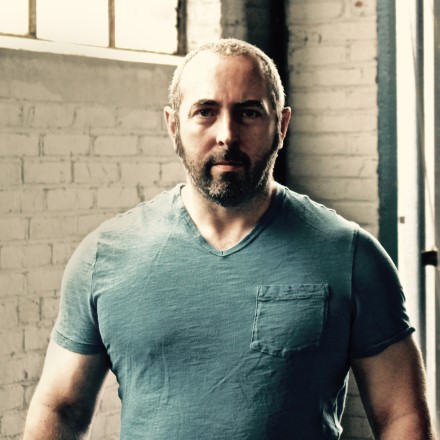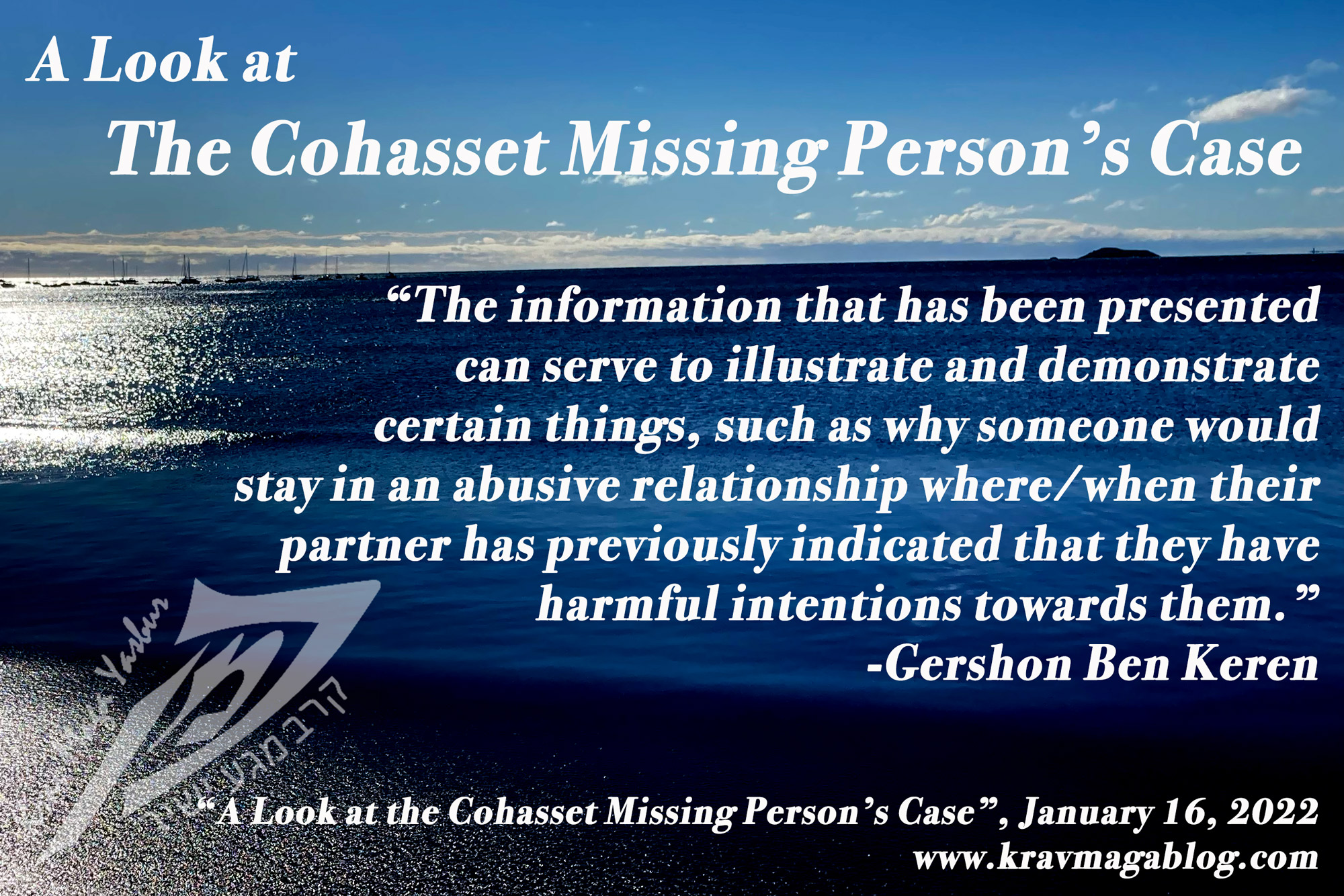Cohasset missing person, Ana Walshe, apparently told Washington DC police in 2014 (by phone), that her partner, Brian Walshe (although he wasn’t specifically named, but was identified as the person she was referring to), had threatened to kill her and a friend. The case was dropped because she failed to cooperate with the investigation, leading to the charges being dropped. In any investigation, involving a missing person this is a significant piece of evidence, because it tells something about the relationship between the couple i.e., there is at the very least a degree of volatility, and high emotion between them. It could be that these events occur because of a need for drama in the relationship, rather than out of necessity, and so may not necessarily indicate that the person making the complaint/charge was in danger etc. This may sound a controversial viewpoint, and I am in no way saying that those who bring such concerns to law-enforcement should be disbelieved and dismissed, or that there should be no subsequent investigation but rather that relationships can be complicated, emotional and volatile, and that people can say things in a moment that they don’t mean, and/or that get interpreted as indicating a genuine intent, when there is not etc., and that when then the other party goes missing, is taken to be a smoking gun (this “new” evidence is important and extremely significant but shouldn’t be viewed as conclusive). In this article, I want to examine why someone who might genuinely believe that their life was in danger, would stay with – and then marry – the person who had threatened their life i.e., why would you choose to stay with, and plan your life with, someone who had threatened to kill you? Our “rational” selves would tell us that this makes no sense, and that should someone indicate that they mean to harm, injure and/or kill us, we would exit that situation immediately. However, these situations often don’t play out that way. In this article I want to look at two reasons why people stay in abusive and potentially dangerous/deadly relationships.
One of the reasons people stay in abusive relationships, and/or go on to have future relationships with abusive partners is familiarity. As humans we hate the unknown, and will stick with something or someone that we understand and is familiar to us, rather than risk putting ourselves in an unknown situation. This is one of the reasons why partners who argue usually return to a familiar argument/dispute e.g., an argument that starts off about a “new” thing, such as spending too much money on an item of clothing, often returns to and ends up at a commonly repeated argument about not doing laundry, washing up etc., even though the two are unrelated. A 2015, study by Cravens et al., looking at why women stayed in abusive relationships, found that a majority of participants in the study expressed that “fear of the known was better than fear of the unknown”. The fear of change, and resistance to change is a well known and understood phenomenon in psychotherapy. Recognizing the need for change, means that we have to recognize that the social structures upon which our lives our built and our concept of self is partly constructed are flawed, incomplete and an untrustworthy foundation for our lives.
Another reason that a person might stay in a potentially dangerous/deadly relationship, is due to something referred to as coercive control. This was a term coined by Dr Evan Stark, to refer to the non-physical aspects of abusive relationships. Often violence against women in abusive relationships is reduced to specific incidents and events. This is because when looking at intimate partner violence there is a tendency to view it from a legalistic perspective e.g., when did he hit you? etc. This misses a large part of abuse, which includes the psychological, emotional and sometimes financial aspects, that runs continuously in the background and is not specific and therefore difficult to quantify, or even identify e.g., a “sense of fear” cannot be measured, and often has no specific evidence or incident linked to it, however this is one of the most defining attributes of an abusive relationship – the fear of what might happen. It is this that abusers use to control the individuals they victimize. Ana Walshe called her mother (asking her to come and stay with her) and friends several times before she went missing. It may be that she knew what her “present” meant, and what her “future” may have looked like.
At this stage in the investigation we don’t want to draw too many conclusions about what actually happened as new evidence is still coming to light; and although it may seem to point in a certain direction, what has been shared publicly is far from conclusive. However, the information that has been presented can serve to illustrate and demonstrate certain things, such as why someone would stay in an abusive relationship where/when their partner has previously indicated that they have harmful intentions towards them.
Share:

Gershon Ben Keren
2.8K FollowersGershon Ben Keren, is a criminologist, security consultant and Krav Maga Instructor (5th Degree Black Belt) who completed his instructor training in Israel. He has written three books on Krav Maga and was a 2010 inductee into the Museum of Israeli Martial Arts.
Click here to learn more.

